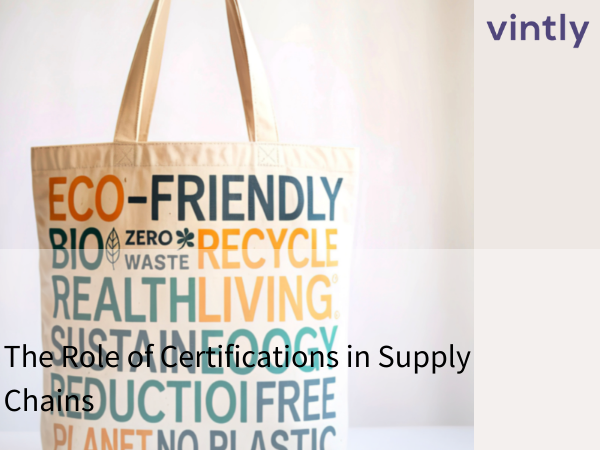The European policy CSDDD, Corporate Sustainability Due Diligence Directive, is a new policy that will affect various industries. One industry that is going to be highly impacted is tThe fast moving consumer goods (FMCG) industry as it has a large environmental and social footprint due to their extensive supply chains.
Breaking down and understanding the CSDDD policy
The CSDDD is a policy that aims to ensure that companies operating within the European Union prioritize both sustainable and social responsibility in their operations. The policy requires companies to conduct due diligence to identify and prevent and reduce any negative impacts on human rights, the environment, and society.
The key components of the policy are that companies are to identify and assess risks, take measures to prevent harm, and monitor and report on their sustainability efforts, yearly. The policy also emphasizes the importance of collaboration with supply chain partners to ensure compliance.
The policy will impact supply chain processes, potentially leading to challenges for companies. However, companies that can comply with the policy will lead to improved consumer safety, increased consumer trust, and a competitive advantage.
Steps for Compliance from a high level
Let’s use an story telling example to describe each step:
Step 1: Policy Development and Commitment
A fast-moving consumer goods company, let’s say selling apparel, in the European Union commits to implementing the ESG CSDDD policy by developing a comprehensive policy that outlines the company's commitment to environmental, social, and governance issues. The policy should specify targets and timelines for reducing the company's carbon footprint, improving labor conditions, and increasing transparency within reporting.
Step 2: Integration and Implementation
The company then integrates the ESG CSDDD policy into its business operations by implementing sustainability initiatives across its supply chain. For instance, the company sources responsible raw materials from sustainable suppliers and reduces packaging waste by using eco-friendly packaging materials. The company also implements fair labor practices by providing safe working conditions and fair wages to employees.
Step 3: Monitoring and Reporting
After implementation the company continuously monitors its progress towards achieving the targets set in the ESG CSDDD policy by conducting regular audits and assessments by using key performance indicators (KPIs) to measure its progress and identifies areas for improvement. During the assessment companies may need to adjust targets and goals depending on development. The company divulges its sustainability performance to stakeholders, including investors, customers, and regulators.
Step 4: Continuous Improvement
The company continuously improves its sustainability performance by setting new targets and implementing new initiatives based on findings. The company engages with stakeholders to identify sustainability issues and develops strategies to address them. The company also invests in research to develop innovative solutions that reduce its environmental footprint and improve social and governance practices. The company releases its reports and achievements and makes it available for all to access.
Steps for Compliance from a product level
Steps are needed to be taken not only on a company level, but also on a product level. FMCG companies can take steps to comply with the CSDDD on a product level by:
- Identifying affected products: This first step is to identify the products that are affected by the ESG CSDDD policy. Specifically products that contain harmful chemicals or are packaged in non-recyclable materials.
- Collecting and managing data: In this next step collecting and managing data related to the affected products should take place. For example, data on the chemical composition of products or the recyclability of packaging materials would need to be collected and managed.
- Implementing safety features: The third step would involve implementing safety or sustainability activities for the affected products in order to comply with the ESG CSDDD policy. For example, products could be reformulated to remove harmful chemicals or packaging materials could be changed to improve recyclability.
- Collaborating with supply chain partners: This last step would involve collaborating with supply chain partners to ensure that the affected products are compliant with the ESG CSDDD policy. For example, suppliers of raw materials or packaging materials need to be engaged to ensure that the materials they provide meet the policy requirements, such as different types of certificates or test results.
Companies can also seek guidance from sustainability experts and industry associations to ensure compliance.
Compliance with the CSDDD will lead to improved consumer safety and consequently their trust, and a competitive advantage. Companies that prioritize sustainability and social responsibility may also attract more investors and customers who hold similar values as it takes its impact on the planet seriously.
So how can a company report on ESG initiatives to meet CSDDD policy requirements?
Companies may think this is a daunting task and not sure where to start, however reporting on ESG according to CSDDD policy is a crucial step to summarize all initiatives taking place by a company. To accomplish this task in a timely manner, most companies nominate a dedicated resource to be able to generate such a report since it requires a lot of fine tuning and support from various departments, partners and stakeholders.
So let's break it down. First and foremost, the report should include a description of the company's due diligence processes and its outcomes. The report needs to cover information and data on the company's policies, risks, and outcomes related to environmental, social. Employee welfare and labor practices are to be reported on, including fair wages and safe working conditions, respect for human rights, as well as anti-corruption and bribery issues. This is both for internal employees and employees with partners within the supply chain. One way to monitor partners activities is through audits via a reputable third party service.
When it comes to the supply chain, sustainability initiatives are to be included in the report. These efforts should be focused on reducing waste, use of renewable energy sources, mindful practice when sourcing raw materials, and the longevity of the product (as it relates to its afterlife through recyclable, re-use, re-purpose).
Submitting the report: The report is to be submitted annually and can simply be published on the company's website for all to access. Moreover, It also should be filed with the national authority where the company is headquartered within the EU member state. The reporting requirements will vary depending on the size and type of company, but overall companies need to disclose information and data on environmental impact, social responsibility, and governance practices.
Failure to comply with the CSDDD can result in fines and reputational damage, which could ultimately lead to a loss of customers and revenue. Therefore, it is crucial for companies to take the necessary steps to comply with the CSDDD and demonstrate their commitment to ESG principles.
The CSDDD policy will have a significant impact on FMCG companies, requiring them to prioritize sustainability and social responsibility in their operations. Compliance with the policy will lead to improved consumer safety, increased consumer trust, and a competitive advantage. Companies must take necessary steps to comply with the policy and prioritize sustainability to ensure long-term success.
.png)


